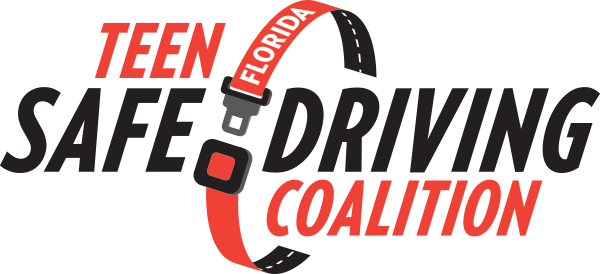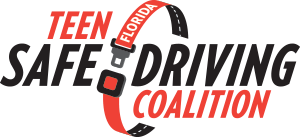
5 Ways to Help If Your Teen Is Nervous to Start Driving
Most kids grow up ecstatically looking forward to the day they can start driving. Driving is a culturally ingrained symbol of freedom and growth, and few adolescents express anything except enthusiasm to get behind the wheel as they approach the legal driving age.
While that is the case for the vast majority of teenagers, some are not as eager to learn how to drive. When this occurs, a common reason is general nervousness. Driving is a big responsibility, so it is natural and even healthy to have a bit of a cautious outlook. However, if the feeling of anxiety becomes an obstacle that interferes with beginning to learn at all, parents are often unsure of what to do. While there is nothing wrong with temporarily putting driver education on hold, there are advantages to beginning the learning process at an early age.
Most states have some type of graduated licensing laws in place that are designed to help teenagers gradually build up their skills by slowly lifting restrictions. These restrictions range from how many (if any) peer passengers are allowed in the car, what times of the day they are and are not allowed to drive, etc. This allows them to slowly adjust to driving independently so that by the time they are allowed all of the privileges adult drivers have, they have already built a sturdy foundation of skills and experience. Because these laws help young drivers develop safe skills before being fully set free on the road, it can be advantageous for teens to get their licenses while these laws apply.
If your son or daughter is expressing nervousness about starting driver education, here are a few strategies to help him/her brave through it and experience the joy and pride that comes with becoming a skilled motorist.
Talk Through the Hesitation
If your teen is expressing hesitation about driving, create an open flow of communication about where that reluctance is coming from. Is it normal nervousness about trying something new? Does your son or daughter know someone who was in a bad collision? Does he/she have bad anxiety in general?
By patiently learning where the hesitance lies and making it clear that you are not going to be judgmental, you’ll have a stronger grasp on what steps you can take to alleviate that anxiety. Emphasize that a bit of nervousness is natural, and make it clear that you are there to support your teen in making safe and responsible decisions behind the wheel.
Find a Reliable Driving School
Sometimes bringing an expert on board is the best way to get a message through to someone, which is why you might benefit more from enrolling your son or daughter in a driving school rather than trying to tackle everything yourself.
Experienced driving instructors have worked with all sorts of students who express varying attitudes when it comes to getting behind the wheel for the first time, ranging from the adventurer who wants to test the limits to the timid person who is scared to even put the keys in the ignition.
This experience helps instructors know how to put someone at ease, as they can slowly help students start the process of learning how to drive in a proven step-by-step process that does not feel overwhelming. Similarly, if your teen plans to take driver education in a live classroom, seeing the excitement from peers may rub off and help put him/her at ease. On the other hand, if your teenager feels shy about learning around other students, an online driving school paired with one-on-one driving lessons may be the better route to go.
When it comes to finding a reputable driving school, seek out one that has positive reviews, provides driving lessons in cars with advanced safety features, is approved by the DMV, is recommended by the Better Business Bureau, and/or has passed the stringent requirements to become a AAA Approved Driving School.
Consider Advanced Driving Courses
Another way to help nervous student drivers gain confidence behind the wheel is enrolling them in advanced courses, such as a defensive driving class. Defensive driving classes teach students advanced skills with a strong focus on hazard avoidance and how to react in unexpected and emergency situations.
Being equipped with this strong skill-set can put nervous drivers at ease, as they will feel more confident that they can handle unpredictable scenarios on the road. They’ll also be well versed in how to minimize the likelihood of encountering any dangerous situations in the first place.
Walk Through Reassuring Safety Steps
While no one has complete control over what the road ahead looks like, it can be reassuring for novice drivers to learn that there are steps they can take to help ensure their safety while driving. Making these preemptive safety measures known to teens will help them realize that some of their anxiety can be relieved simply by being prepared.
These measures can include:
- Always have an emergency safety kit in the car.
- Leave early to allow plenty of time to arrive at the intended destination so that there is no stress in getting there on time. If possible, plan to travel during times of the day when there is not heavy traffic.
- Stay aware of weather reports in order to avoid driving during harsh conditions.
- Never put off important car maintenance and upkeep.
- Minimize distractions, and never drive when drowsy.
- When possible, drivers should try to keep space between their cars and other vehicles while driving. This way, there is space to react safely if they need to suddenly change lanes, step on the brakes, etc.
Practice Positive Reinforcement
If your teenager is working hard to overcome his/her anxiety, make it known that you are proud, and celebrate the small victories. Whether it’s an encouraging card, a dinner of your son or daughter’s choice, or simply some sincere verbal praise, expressing your encouragement and acknowledging the brave steps taken will show your teen that you are supporting him/her every step of the way.
Between agreeing to learn how to drive, passing the written permit test, getting behind the wheel for the first time, merging on the highway, and obtaining an actual driver license, there are many milestones you can acknowledge on your teen’s journey towards getting their driver license. Your teen will be more likely to succeed and gain confidence if you’re cheering from the sidelines as well as if you remain patient with any difficulties that may come up. The more that your teen drives, the less fearful he/she will feel, which is why it’s important to do all you can to keep your adolescent determined to stay the course.
Closing Up
A safe driver does retain a healthy level of cautiousness, but if that cautiousness surpasses rationality, it may lead to avoiding the driver seat altogether. Hopefully this information gives you a few ideas on how to help your teenager overcome nervousness preventing him/her from learning how to drive. Through knowledge, experience, and encouragement, the fear of driving can be replaced by enthusiasm and respect for the open road.
——
By: Andrea Russel

